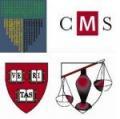
Harvard-MIT-Yale Cyberscholar Working Group
at Yale Law School
Wednesday, March 30, 2011 at 6:00PM
Yale Law School, faculty lounge on the second floor
New Haven, CT
The "Harvard-MIT-Yale Cyberscholar Working Group" is a forum for fellows and affiliates of the Comparative Media Studies Program at MIT, Yale Law School Information Society Project, and the Berkman Center for Internet & Society at Harvard University to discuss their ongoing research.
This month's presenters will include:
Research, Service, and Ethics in contested spaces: How definitions can go wrong
Charlie DeTar, MIT
Abstract: Between the Bars is a blogging platform for prisoners created by the MIT Center for Future Civic Media. The site, launched in October, 2010, rapidly grew in popularity until it was suspended in December due to regulations surrounding research involving prisoners. This talk will describe the difficulty of navigating the regulatory structures of prisons, universities, and review boards in the creation of a politically contentious service project. Between the Bars will be resuming service next month.
Charlie DeTar is a PhD candidate and researcher at MIT, and a fellow at the Center for Future Civic Media. He studies the ways in which technology can democratize traditional power relationships.
= =
Data integration and segregation: Profiling the poor online
Seeta Peña Gangadharan, Postdoctoral Fellow, Yale Information Society Project, Yale Law School
Spurred by the American Recovery and Reinvestment Act of 2009, state, civil society, and market actors are partnering to ensure that new government funding helps build sustainable broadband infrastructures that serve historically marginalized communities, particularly poor communities. But, as poor communities are being brought online, what are the ways in which their experiences are being constructed and constrained through profiling technologies? As Gandy (2009, 2010) argued, the collection, identification, categorization, processing, and evaluation of individual user behavior has the potential to reinforce and exacerbate social inequalities. Whether being categorized as “high risk” consumers, served ads that prey on vulnerable viewers, or targeted with tailored political campaign messages, low-income users face potentially harmful scenarios when moving across the digital divide. This work-in-progress considers the tensions between data profiling practices and the larger goal of meaningful participation of poor people in a digitally mediated society.
Seeta Peña Gangadharan (Ph.D., Stanford University) is a postdoctoral fellow in the Information Society Project at Yale Law School. With a focus on theories of media democracy and media justice, she examines the intersections between civil society, communication practices, and communication policies. Her work has appeared in the Journal of Communication Inquiry and New Media & Society. She has edited two collections, Online Deliberation: Design, Research, and Practice and Alternatives on Media Content, Journalism and Regulation. Gangadharan received her B.A. from Stanford University and her M.Sc. from the London School of Economics and Political Science.
= =
The Praxis of Digital Media: a project-based, service-learning approach to Multimedia for Social Change
Sasha Costanza-Chock, Berkman Center Fellow & MIT Center for Future Civic Media
In 2010 and 2011, I created a service-learning course and multimedia workshop that partners USC undergraduates with community based organizations (CBOs) in Los Angeles to develop participatory media projects for social change. In the course, students work with CBOs to develop and implement a plan for a participatory media project, while blogging about the process and meeting in a weekly seminar to share, reflect upon, and workshop their project together with other students. This presentation will share some strategies and practices from the course, reflect on the challenges, and invite a conversation about how to integrate community partnerships into a critical pedagogy of media justice and communication rights.
Sasha Costanza-Chock is a researcher and media maker who works on the political economy of communication, community media, and the transnational movement for media justice and communication rights. He is currently a Postdoctoral Research Associate at USC's Annenberg School for Communication and Journalism, as well as a Berkman Fellow. This fall, Sasha will be joining MIT's Comparative Media Studies department as Assistant Professor of Civic Media.
